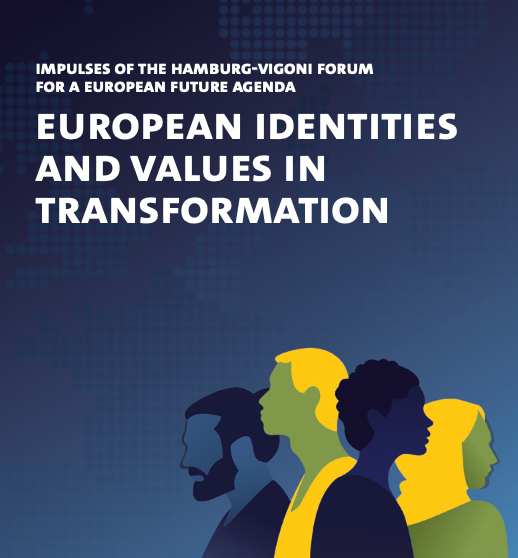European Identities and Values in Transformation
It is difficult to say whether the debate on Europe’s identity and its cultural roots and values will ever come to an end. Certainly, over the centuries, intellectuals, scholars, and even ordinary citizens have grappled with definitions of what Europe is and what values and identity traits distinguish it from the rest of the world. The mention of “intellectuals”, “scholars”, and “ordinary citizens” is not accidental: like few other socio-political issues, the question of European identities affects and – in some way – involves every citizen of the continent.

At a time of great worldwide polarization, of constant movement of people between cities, states, and continents, of upheavals both socio-economic and geo-political, the issue of identity has returned as much as ever to the center of global and, therefore, also European public opinions. It is frequently thematized from a defensive perspective, aimed at distinguishing us from them, friends, and enemies. Yet, each time it is addressed, the question of European identity partially shifts, changes connotations and accents, and appears in transformation. Circumscribing the analysis to recent years, how could it be otherwise considering the fact that the European continent has faced a succession of crises: from the financial and economic crisis to the migrant one, from the COVID-19 pandemic to the Russian war of aggression in Ukraine? Each of these events has brought to the center of European public opinion questions, issues, and contradictions; each of these crises has called for different values, ideals, and hopes. The rapid succession with which the last two crises (the pandemic and the war) have followed one another and the measures and, especially, the awareness-raising they have brought with them demand to dwell on their repercussions on the European identity.
It is precisely this task that the Hamburg-Vigoni Forum has dedicated itself to over the past year, and this paper, entitled European Identities and Values in Transformation, brings together some of the results of this effort. In particular, it documents the proceedings of the second international workshop promoted by the Hamburg-Vigoni Forum, entitled “Further Perspectives on the European Unions (Strategic) Sovereignty and European Identities”, which took place from February 13 to 15, 2023 at Villa Vigoni in Menaggio, on Lake Como.
